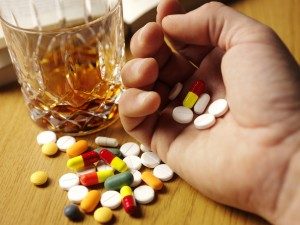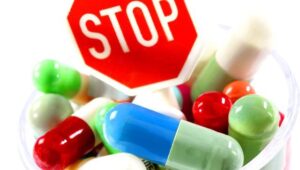Co-Morbidity between ADHD and substance abuse

As ADHD has been increasingly diagnosed amongst children, many people know about the main symptoms of ADHD and how it can cause someone to feel distracted, procrastinate or fidget excessively. Recent studies have also pointed to another important aspect of ADHD— it can actually be a risk factor for alcohol or substance abuse.
In studies comparing people with ADHD to people with out it, up to 35-75% of people with ADHD also experience co-morbid alcohol or substance abuse. People with ADHD also tend to start drinking earlier than people without ADHD and are likely to try riskier drugs and substances. Risky behaviors and reckless decisions are associated with an ADHD diagnosis and explain why such a strong link between ADHD and substance abuse exists.
This high correlation between substance abuse and ADHD speaks to a large issue at hand, that perhaps, people who are struggling with addiction can have undiagnosed ADHD as well. ADHD is harder to diagnose in adults than in children because the symptoms vary more, are less overt and quite simply, clinicians are not looking out for it. It is very important for the ADHD diagnosis to be addressed because the treatment of the ADHD can be necessary for the addiction to be treated.
Self-medication fuel addictive patterns

People with ADHD who have used cannabis have said that it actually reduces their symptoms and cocaine has been found to reduce ADHD symptoms as well. In one survey, about 70% of people with ADHD said they used substances to help with their mood and sleep with only 30% using substances for the feeling of being high.
This can strengthen the increased use of drugs because those ADHD symptoms that disrupt mood, functioning, and interpersonal relationships, are alleviated. Drugs can have a similar effect on the ADHD brain as ADHD stimulant medications.
People with ADHD are said to have less dopamine in their system, which means they require more dopamine to be released to feel “pleasure’. Due to this, cocaine actually has a calming effect on people with undiagnosed or untreated ADHD instead of an exhilarating effect.
Also, people with ADHD that is not properly treated can experience trouble academically, in their careers or in their relationships. All these issues and challenges can cause someone to experience lower self-esteem and lower moods. Alcohol and substances can be used to provide relief from these negative feelings and cope with stressful situations
.
Treatment for ADHD and Substance Abuse

The strong link between ADHD and addiction emphasizes the importance of diagnosing ADHD early on and adequately treating the symptoms from childhood. Some studies have found that people who are medicated for ADHD are less likely to develop substance abuse issues than other people with ADHD.
Also, people with a dual diagnosis of ADHD and addiction, need to work with clinicians to create an integrated treatment process that tackles both challenges. For example, if someone is struggling with their ADHD and in therapy for it, his or her addictive behaviors can be worsening the ADHD symptoms and can be the reason why therapy is not effective. Some sources have suggested that for people with ADHD an addiction to substances or alcohol it is best that they become sober before they treat their ADHD (for at least six weeks).
For people with ADHD and addiction challenges, doctors will prescribe non-stimulant medications rather than stimulant medications (which are normally prescribed). Stimulant medications can potentially cause addiction, and for someone struggling with substance abuse, non-stimulant medication is the way to go. It is extremely important that both the ADHD and addiction are diagnosed properly as this can drastically change the treatment plan for the patient.
Work Cited
Ohlmeier, M. D., Peters, K., Wildt, B. T. T., Zedler, M., Ziegenbein, M., Wiese, B., … & Schneider, U. (2008). Comorbidity of alcohol and substance dependence with attention-deficit/hyperactivity disorder (ADHD). Alcohol & Alcoholism, 43(3), 300-304.(ADHD)
https://psychcentral.com/lib/is-adult-adhd-linked-to-addiction/
